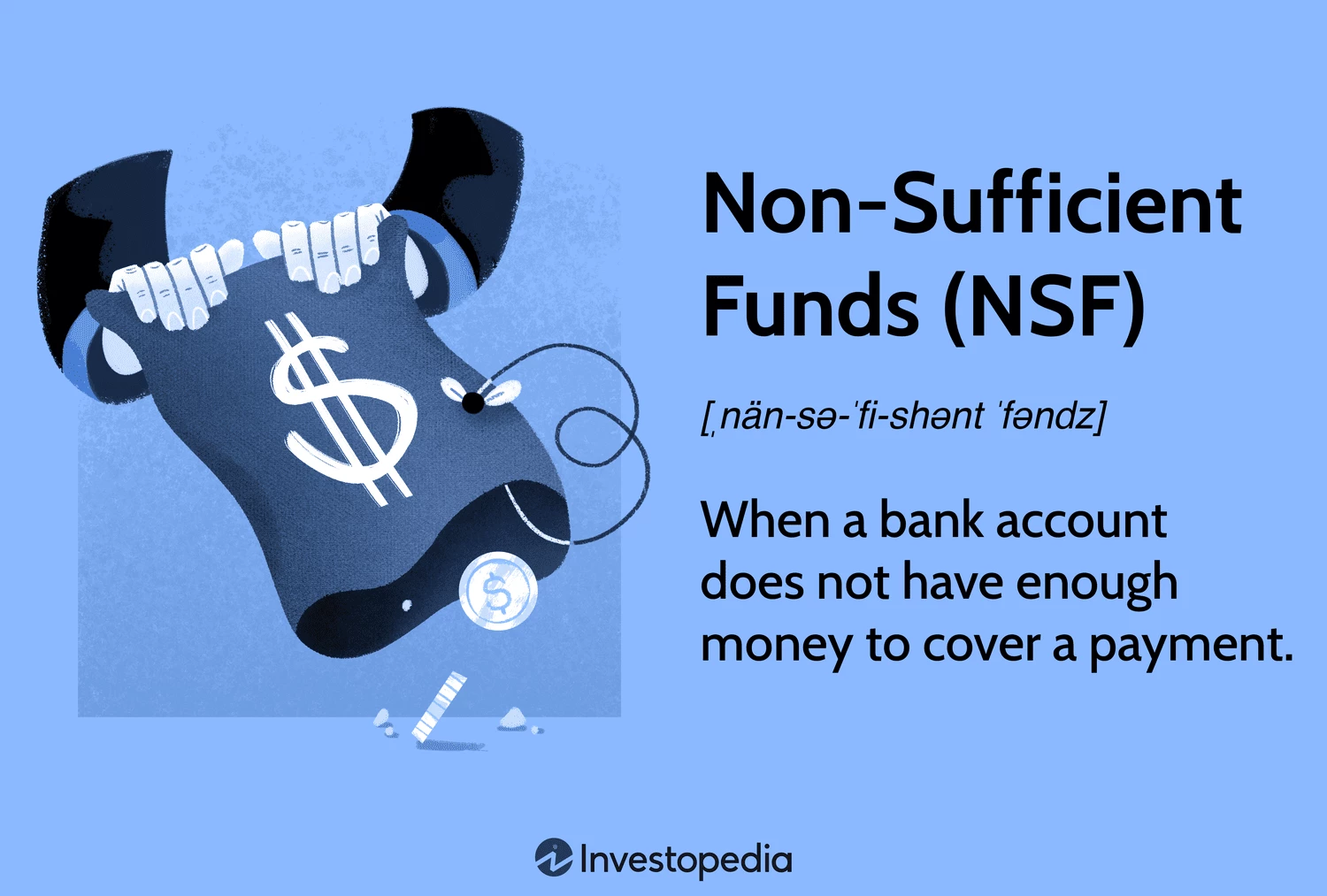Understanding Non-Sufficient Funds (NSF)
Non-sufficient funds (NSF) refer to a situation where a checking account does not have adequate funds to cover transactions, leading to fees when a check cannot be covered by the available balance.
Customers encounter a “non-sufficient funds” notice on their bank statement when attempting to withdraw more money than what their account holds.
An incomplete payment is usually termed as “bounced.” Banks can reject a check if the account lacks funds, resulting in an NSF fee imposed on the account holder. Additionally, merchants may also charge a fee for returned checks.
How Do Non-Sufficient Funds Fees Operate
Banks levy NSF fees when checks or payments cannot be processed due to insufficient funds, with the average NSF fee being $34 according to the Consumer Financial Protection Bureau (CFPB) 2022 data.
If a check is deposited, and funds are not available in the payer’s account, it incurs an NSF fee.
To prevent penalties related to insufficient funds, account holders can opt-out of overdraft policies or link alternative accounts like savings or credit cards for fund coverage.
Distinguishing NSF Fees from Overdraft Fees
NSF fees and overdraft charges are distinct banking transactions. While NSF fees occur when payments are returned due to insufficient funds, overdraft fees arise when banks cover checks that exceed account balances.
For instance, a $100 checking account may incur an NSF fee if a $120 purchase is attempted. Alternatively, acceptance of the check may result in an overdraft fee.
Overdraft protection allows customers to make transactions that go beyond their account balance, subject to fees determined by the bank’s policy.
Tips for Avoiding NSF Fees
- Prudently manage monthly expenses
- Avoid writing checks or making payments exceeding the account balance
- Regularly monitor account balances and transactions
- Set up multiple linked accounts for automatic fund transfers
- Consider overdraft lines of credit for additional coverage
Stay updated with low-balance alerts to track account funds effectively and adjust spending habits accordingly.
Criticism of NSF Fees
The oversight provided by the Consumer Financial Protection Bureau (CFPB) highlighted bank fee misconduct, leading to reforms on overdraft and NSF charges to safeguard consumers.
In the past, financial institutions manipulated transaction processing to maximize overdraft fees, resulting in legal settlements to reimburse affected consumers.
Various banks have faced settlements for unfair fee practices, emphasizing the need for stricter regulation to protect customers from excessive charges.
Frequently Asked Questions
Why Do Banks Impose NSF Fees?
Banks charge NSF fees to offset costs associated with declined payments, amplifying profit margins, as noted in a report by the Woodstock Institute.
Legality of NSF Fees
NSF fees are lawful for bounced checks but should not apply to debit card transactions or ATM withdrawals, with transparency mandated by the Truth in Lending Act.
Waiver of NSF Fees
Consumers can request an NSF fee reversal from their bank, often successful, particularly for first-time incidents.
Impact of NSF Fees on Credit
While NSF fees do not directly affect credit scores, they can lead to delayed payments, indirectly impacting credit rating.
Consequences of Unpaid NSF Fees
Non-payment of NSF fees results in automatic deductions by the bank, leaving customers with little recourse.
Conclusion
NSF fees, though legal, have faced criticism for their impact on consumers. However, with increased oversight from regulatory bodies, customers can take steps to avoid these fees through vigilance and proper financial management practices.
